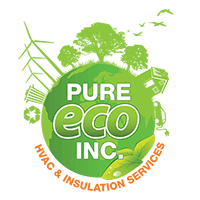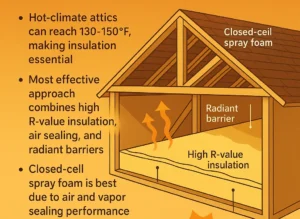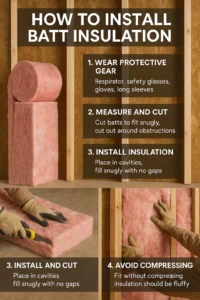In recent years, there has been a growing interest in eco-friendly insulation materials for homes. With a focus on sustainability and reducing environmental impact, homeowners are looking for insulation options that not only provide effective thermal insulation but also contribute to a greener future.
By investing in eco-friendly insulation materials, you can lower your energy costs, reduce your carbon footprint, improve indoor air quality, and contribute to a greener future. Insulating your home with environmentally friendly materials not only benefits the planet but also enhances your living experience and increases the value of your property.
Here are some of the top eco-friendly insulation materials available in the market and their benefits, features, and considerations.
Wool Insulation
Wool insulation, made from sheep’s wool, is a popular choice for eco-conscious homeowners. It is a renewable and biodegradable material that offers excellent insulating properties. Wool fibers contain tiny air pockets, which help trap heat and provide effective thermal resistance. Additionally, wool insulation is resistant to moisture, making it suitable for various climates. It is also fire-resistant and can absorb and release moisture without compromising its insulating properties.
Cotton Insulation
Cotton insulation is another eco-friendly option for home insulation. Made from recycled denim or cotton fibers, this type of insulation utilizes materials that would otherwise end up in landfills. Cotton insulation offers good thermal performance and can help reduce energy costs. It is easy to install and doesn’t require any special protective gear during the installation process. However, it’s important to note that cotton insulation may not be as effective in humid conditions, as it can absorb moisture.
Cellulose Insulation
Cellulose insulation is made from recycled newsprint or other plant fibers and is an excellent eco-friendly insulation choice. It is treated with chemicals like borate, which provides resistance against pests, fire, and mold. Cellulose insulation is blown into walls, attics, and other cavities, creating a seamless and efficient barrier against heat transfer. It has a high R-value, meaning it offers great thermal resistance. However, proper installation is crucial to ensure its effectiveness.
Spray Foam Insulation
Spray foam insulation is a versatile and energy-efficient option that can be used in various areas of a home. While some spray foam products may contain chemicals that raise environmental concerns, eco-friendly alternatives are available. These alternatives are typically made from renewable materials like castor oil and do not contain harmful blowing agents. Spray foam insulation expands to fill gaps and cracks, providing an airtight seal and excellent thermal insulation.
Icynene Insulation
Icynene insulation is a type of spray foam insulation that is known for its eco-friendly properties. It is water-blown and expands rapidly upon application, filling all the nooks and crannies in a building’s structure. Icynene insulation helps reduce energy consumption by providing an effective air barrier, preventing drafts and heat loss. It is made from recycled materials and doesn’t emit harmful gases, making it safe for both the environment and occupants.
Denim Insulation
Denim insulation, as the name suggests, is made from recycled denim fibers. It is an environmentally friendly alternative to traditional insulation materials like fiberglass. Denim insulation offers good thermal performance, soundproofing capabilities, and fire resistance. It is easy to install and doesn’t require protective gear. Denim insulation is also free from formaldehyde, a common chemical found in some insulation products that can cause respiratory problems.
Polystyrene Insulation
Polystyrene insulation, often referred to as foam insulation, is a lightweight and effective insulation material. While it is not biodegradable, some manufacturers produce eco-friendly versions that use a percentage of recycled content. Polystyrene insulation offers excellent thermal resistance and can help reduce energy costs. It is commonly used in construction and is available in different forms, including sheets or stickers, to suit different insulation needs.
How to Choose the Right Material for You
When considering eco-friendly insulation materials, it is important to assess factors such as the insulation type, installation process, performance in specific climates, and compatibility with your home’s design and construction. Consulting with insulation professionals and considering the unique needs of your home will help you make the best choice.
Why Choose Eco-Friendly Insulation Materials?
Eco-friendly insulation materials not only provide effective thermal insulation but also contribute to reducing environmental impact. They are often made from renewable or recycled materials, helping to minimize waste and conserve natural resources. Additionally, these materials offer benefits such as excellent thermal resistance, fire resistance, moisture resistance, and soundproofing capabilities, ensuring a comfortable and energy-efficient home.
Thus, choosing eco-friendly insulation materials for your home is a significant step toward creating a sustainable and energy-efficient living environment. With a wide range of options available, including wool insulation, cotton insulation, cellulose insulation, spray foam insulation, and more, homeowners can make an informed choice that aligns with their values and goals.
Eco-Friendly Choices Beyond Insulation
Eco-friendly insulation materials offer a compelling solution for homeowners seeking to reduce their environmental impact and create energy-efficient homes. By exploring the various options available and considering their unique benefits and considerations, you can make an informed decision that aligns with your sustainability goals while enjoying the comfort and savings that come with a well-insulated home.
Of course, making environmentally conscious choices extends beyond insulation. It is essential to consider other aspects of your home’s energy efficiency, such as proper ventilation, sealing leaks and drafts, and using energy-efficient appliances. By adopting a holistic approach to sustainable living, you can create a comfortable and eco-friendly home for yourself and future generations.
If you are interested in insulating your home, call Pure Eco Inc. today at (877) 870-7998 and find out how eco-friendly insulation materials can help you improve your life and increase your home’s value. Ask for your free quote and request your free Home Comfort Estimate!




